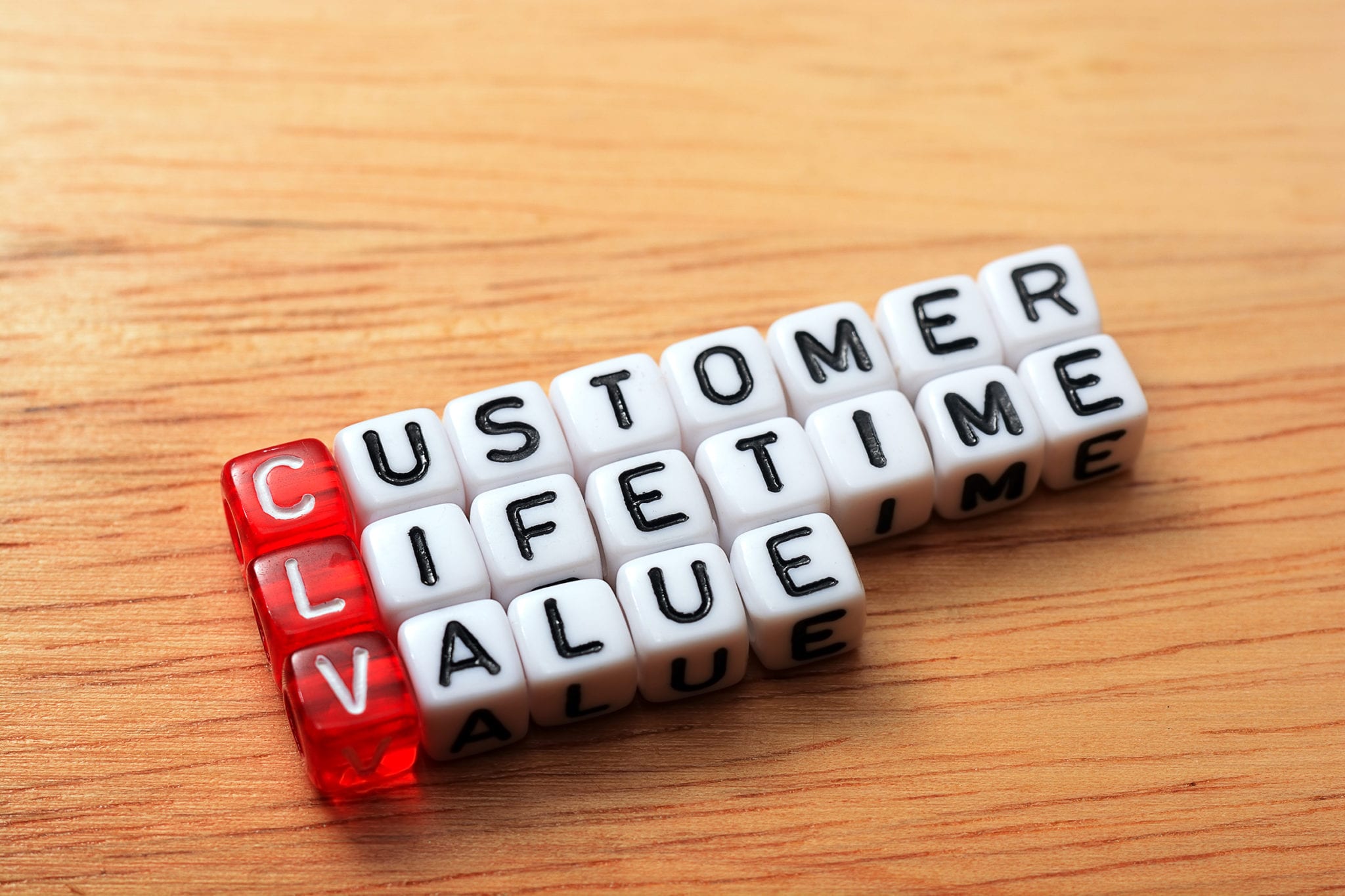Many businesses focus almost exclusively on customer acquisition — a logical strategy for any startup, not so much for those who’ve been around the block a time or two. After all, acquiring a new customer can cost you five times more than retaining an existing one. And the probability of conversion between the two is enough to give anyone pause: New customers convert at a rate of 5% to 20%, while existing customers buy at a rate of 60-70%.
These reasons highlight why customer retention should be a major factor in your marketing efforts. You’ll spend less to get more out of people who’ve done business with you before, which naturally leads to the topic of customer lifetime value or CLV, and why it’s an important indicator of success.
Its Weight in Gold
The higher the CLV, the better your profitability will be. What’s more, a higher CLV affords you the luxury of making more accurate revenue predictions. You can calculate with greater certainty whether a customer will return if he or she has a long-standing history with your company. If your CLV is relatively low, that should serve as a reminder that you’re not doing enough to foster loyalty with past customers.
When you take the time to analyze CLV, it can tell you which customer segments and business areas are most profitable. This allows you to redirect your marketing and sales efforts for maximum impact. It also helps you make investment decisions to rectify deficiencies that might otherwise have gone unnoticed.
One of the most common deficiencies for many companies is customer experience or CX. They forget that CX is the sum total of all interactions with customers, including post-purchase. The goal is to provide enduring value to customers throughout their life cycle, and that means making sure they’re just as happy with their purchase on day 1,000 as day one. If you follow up with a past customer and make sure he or she doesn’t have any additional questions, it can often lead to deeper engagement.
In turn, that deepened engagement can translate into a larger deal the next time around, resulting in a higher CLV.
Besides, customer churn is a silent but very dangerous trend. If you’re not tracking this along with CLV, it could have disastrous consequences for your business. Think about what something as simple as an email can do to reassure customers that you’ve still got their best interests in mind. The expense is minimal, and with technology being what it is, you can provide the illusion of a one-on-one communication — plus the channel is totally measurable. You know exactly whether someone has opened the email.
That’s my very long way of saying: Focus on customer experience. You want to communicate with past customers regularly, personalize your messaging, and follow up with anyone you haven’t heard from in a while. There’s a reason he or she dropped off your radar, and you should want to know why.
How you go about improving the customer experience will vary by the target audience, but a number of tactics can prove beneficial no matter the business. The following are often the best places to start:
1. Dedicate the necessary resources.
Chances are, you’ve already got the data, but do you have staff capable of deriving actionable insights from this data? Pull together a team that can use sales data, market trends, competitive analysis, and more to develop strong strategies to bolster CLV.
Employ this same team to manage and measure the results of any action — be it to increase sales per order or sales over time. That way, you can adjust and adapt a given tactic should it not provide the intended outcome. This is next to impossible without a dedicated team, and the results will be just as half-hearted as your efforts.
2. Leverage current relationships.
Consider this: If you’ve established a relationship through a certain business line, this connection could create inroads with decision-makers for other business lines. It’s basically an opportunity to cross-sell to an existing customer.
3. Create brand advocates.
But if you were to take it a step further and bring brand advocates to marketing events, what could that do for sales? You’ve got someone speaking directly to potential customers about the value of doing business with you. Not that you want to exploit their devotion, but their visibility could be beneficial to their business as well.
4. Build a feedback loop.
Customers want to feel heard. It’s as simple as that. Needless to say, take the time to ask customers for feedback. They will give it to you. Put a survey in front of your base and invite them to share their opinions on everything from customer service and satisfaction levels to ease of transaction and potential of repeat business.
Just don’t use feedback as a ploy. Take the suggestions to heart and adjust products and services to meet the needs of your customers. What they have to say offers real value to your business. You may actually learn something about what keeps them coming back — and what has kept them from buying again.
Ultimately, way too many businesses devote way too much time and money on acquiring new customers. Don’t get me wrong; I’m not saying you should divert your entire customer acquisition budget to customer retention. You still need to fill that funnel with new blood, just not at the expense of your current customer base. These people and businesses are important. Treat them as such.
How does your company keep its loyal customers coming back for more? Tell us below in the comments.


